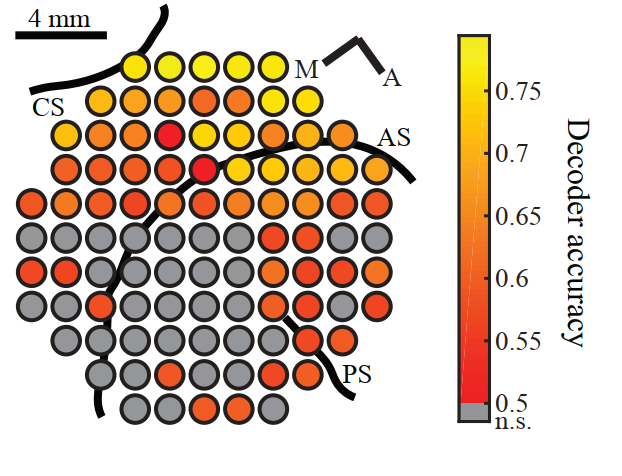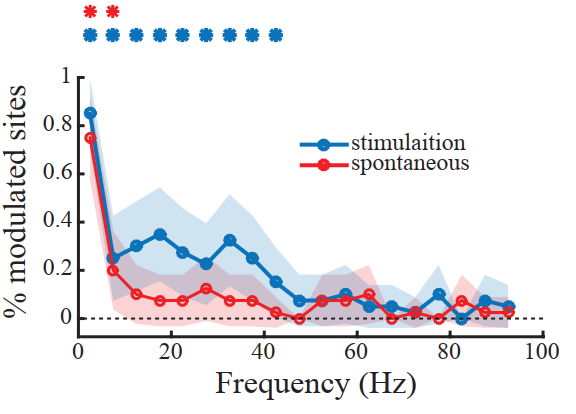





Dynamic neuronal excitability governs communication in large-scale neural networks
Like an orchestral symphony, complex, flexible behavior arises from temporally coordinated interactions among distinct populations of neurons across brain networks. These interactions recruit neuronal dynamics during complex cognitive behaviors that require coordination across brain areas. Fluctuations in coherent neuronal activity, particularly at low-frequencies, reflect changes brain state that are correlated with task performance, suggesting that neuronal communication during complex behavior is state dependent. However, the mechanisms by which brain state changes governs interactions across brain areas are largely unknown. We show that changes in brain state modulate neuronal excitability to synaptic inputs. Using a novel combination of focal optogenetic stimulation and electrophysiology in parietal cortex with large-scale recordings in frontal cortex, we found that synaptically-mediated communication between parietal and frontal cortex was dependent on brain state, as measured by local population activity. During resting wakefulness, local population activity predicts local responses to synaptic inputs. Furthermore, task engagement generates more coherent excitability fluctuations across the frontal network, resulting in an increased response to parietal inputs. Together, these results suggest that fluctuations in neuronal excitability control long-range communication between distinct local networks.